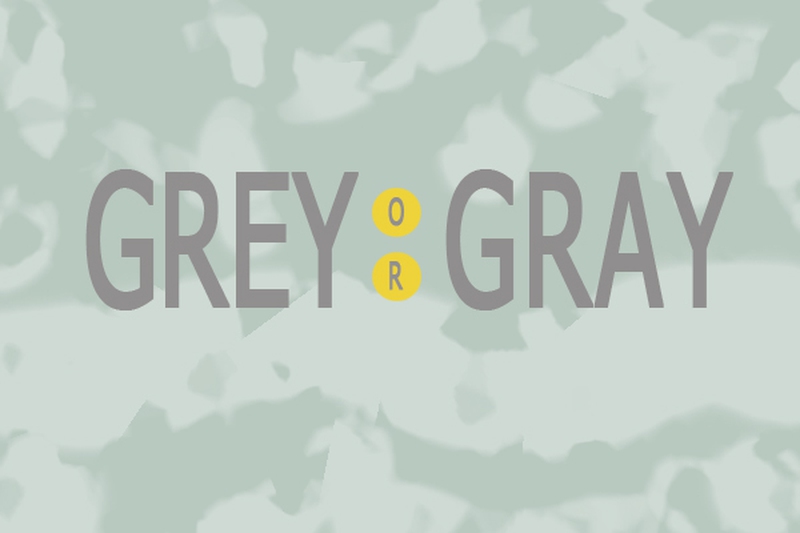If you’re an avid reader, you’ve likely come across the following two words at various intervals: "grey" and "gray". From the context you know what they’re both referring to, but which is correct: grey or gray? Why are they different? This confusion is common, but the explanation is really very simple.

Grey or Gray: What’s the Difference?
Grey
Outside the US, such as in the UK or Australia, the spelling "grey" is used.
For example:
My neighbour recently re-painted their house a light grey colour.
After her second round of chemotherapy, the girl's skin was looking very grey.
The bottlenose dolphins at Sea World have smooth, grey skin.
Gray
In the US, the spelling "gray" is used.
For example:
That area of the law has many gray areas.
The sky was overcast and gray on Wednesday.
The politicians’ wool suit was a dark gray pinstripe.
Grey or Gray: History & Modern Use
How is it that two different spellings of the same word developed from the same language? Both versions have existed for hundreds of years, originating from the Old English grǽg. In the early 18th century, grey began to emerge as the more popular form of the spelling throughout the English speaking world.
However, around the year 1825, American writers began to use gray as the preferred spelling. Since this time, both versions have remained popular, but distinctly relate to separate geographical areas. Gray has remained the official spelling throughout America, whilst grey is officially recognized in Australia, the UK and the majority of other English speaking countries.
The end result is that, currently, gray is used as often as 20 times more frequently in America than it is in the UK, whilst on the flip side, grey is used up to 20 times more frequently in the UK than it is in America.
Generally speaking, the use of grey or gray is carried over to words such as greyed/grayed or greying/graying. There are, however, some exceptions: greyhound (a breed of dog) is always spelt with an “e”, whilst grayling (several types of fish) is always spelt with an “a”.
Grey or Gray: How to Use Them Correctly
Part of Speech
Adjective: used to describe something.
Comparative & Superlative Form
Comparative: greyer/grayer
Superlative: greyest/grayest
Definitions
1. A colour caused by mixing black and white together, similar to the ash from a fire.
Example:
They decided to use grey stones in the new garden.
The little girl liked painting with yellow and pink, but didn’t like gray.
2. Used to describe a mood or feeling, e.g., dreary or gloomy.
Example:
It was a grey day, which perfectly matched my mood.
The band’s new album sounded gray and melancholy.
3. Used when something is unclear, undecided or ambiguous.
Example:
The ruling dealt with a moral grey area.
The council decision was still considered by many to be gray.
4. Used in relation to the elderly.
Example:
Caravan parks in Australia are frequently filled with grey nomads.
The gray dollar is a solid source of revenue in Florida.

View All Comments /Add Comment